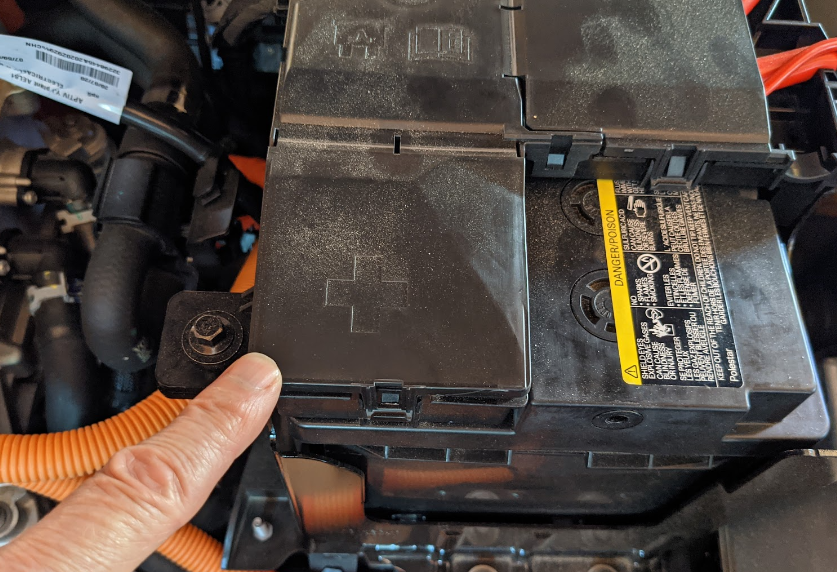Revolutionizing the Energy Industry: The Impact of Smart Grids and Lithium Batteries
In recent years, there has been a growing concern about the need to transition towards cleaner and more sustainable sources of energy. With the increasing demand for electricity and the urgency to reduce greenhouse gas emissions, the energy industry has been forced to explore new technologies and innovations. Two of the most promising advancements that are revolutionizing the energy industry are smart grids and lithium batteries.
Smart grids are a modernized version of the traditional electrical grid system. They incorporate advanced communication and automation technologies to optimize the generation, distribution, and consumption of electricity. By utilizing a network of sensors, meters, and control devices, smart grids enable real-time monitoring and management of energy flow. This allows for better coordination between power plants, renewable energy sources, and consumers, resulting in improved efficiency and reliability.
One of the key benefits of smart grids is their ability to integrate renewable energy sources into the grid. Traditional grids were designed to accommodate centralized power plants that rely on fossil fuels. However, with the increasing adoption of solar and wind energy, the generation of electricity is becoming more decentralized. Smart grids are capable of handling the variability and intermittency of renewable energy sources by dynamically adjusting the distribution and consumption of electricity. This not only reduces reliance on fossil fuels but also promotes the use of clean energy.
Lithium batteries, on the other hand, have emerged as a game-changer in the energy storage sector. Lithium-ion batteries, in particular, have gained popularity due to their high energy density, long cycle life, and fast charging capabilities. These batteries are widely used in portable electronic devices, electric vehicles, and now, in grid-scale energy storage systems.
The integration of lithium batteries into the energy industry has several advantages. Firstly, it enables better utilization of renewable energy. Energy generated from solar panels or wind turbines can be stored in lithium batteries during periods of low demand and released during peak hours. This reduces the need for backup power plants fueled by fossil fuels and allows for a more efficient use of clean energy.
Secondly, lithium batteries enhance grid stability and reliability. They provide a reliable source of power during blackouts or grid failures, ensuring uninterrupted electricity supply to critical infrastructure and residential areas. Additionally, they help balance the supply and demand of electricity, reducing the risk of power outages and grid instability.
Furthermore, lithium batteries facilitate the electrification of transportation. As the world moves towards a greener future, the demand for electric vehicles is increasing rapidly. Lithium batteries enable long-range driving, fast charging, and improved performance of electric vehicles, making them a viable alternative to traditional internal combustion engine vehicles. This not only reduces greenhouse gas emissions but also decreases our dependence on fossil fuels.
Despite these numerous benefits, there are still challenges that need to be addressed for the widespread adoption of smart grids and lithium batteries. One major hurdle is the cost. While the prices of lithium batteries have been decreasing steadily, they still remain relatively expensive compared to traditional energy storage options. Additionally, the installation and infrastructure costs associated with smart grids can be significant.

Another challenge is the need for regulations and policies that support the integration of these technologies. Governments and regulatory bodies need to incentivize the deployment of smart grids and lithium batteries through financial incentives and favorable policies. This will encourage investment in research and development, promote innovation, and accelerate the transition towards a cleaner and more sustainable energy future.
In conclusion, smart grids and lithium batteries are revolutionizing the energy industry by enabling the integration of renewable energy sources, enhancing grid stability, and promoting the electrification of transportation. While there are challenges to overcome, the potential benefits are significant. With continued advancements in technology, increased investment, and supportive policies, smart grids and lithium batteries have the power to reshape the energy landscape and pave the way towards a more sustainable future.
-
 A Lifepo4 battery pack is a type of rechargeable battery that is designed to provide long-lasting power for a variety of applications. These batteries are known for their high energy density, low self-discharge rate, and long cycle life, making them an ideal choice for use in electric vehicles, home energy storage systems, and other industrial applications. One of the...اقرأ أكثر
A Lifepo4 battery pack is a type of rechargeable battery that is designed to provide long-lasting power for a variety of applications. These batteries are known for their high energy density, low self-discharge rate, and long cycle life, making them an ideal choice for use in electric vehicles, home energy storage systems, and other industrial applications. One of the...اقرأ أكثر -
 Electric off-road vehicles are now popular among off-road enthusiasts, but in the past, they were always worried about insufficient power, which was very disappointing. Fortunately, with the explosion of lithium battery technology, the battery life problem of electric off-road vehicles finally has a solution! Lithium batteries are simply a super gas station for electric off-road vehicles, making our off-road journey...اقرأ أكثر
Electric off-road vehicles are now popular among off-road enthusiasts, but in the past, they were always worried about insufficient power, which was very disappointing. Fortunately, with the explosion of lithium battery technology, the battery life problem of electric off-road vehicles finally has a solution! Lithium batteries are simply a super gas station for electric off-road vehicles, making our off-road journey...اقرأ أكثر -
 Golf has always been considered a sophisticated and relaxing sport enjoyed by people of all ages. Whether you are a professional golfer or simply enjoy a casual game with friends, having a reliable and efficient golf cart is essential for enhancing your overall golfing experience. And at the heart of every golf cart lies the golf cart battery, the powerhouse...اقرأ أكثر
Golf has always been considered a sophisticated and relaxing sport enjoyed by people of all ages. Whether you are a professional golfer or simply enjoy a casual game with friends, having a reliable and efficient golf cart is essential for enhancing your overall golfing experience. And at the heart of every golf cart lies the golf cart battery, the powerhouse...اقرأ أكثر -
 In today's fast-paced world, energy consumption has become an integral part of our daily lives. From powering our smartphones and laptops to operating electric vehicles, we rely heavily on batteries to keep our devices running smoothly. However, traditional lead-acid batteries often fall short in terms of efficiency and performance. This is where the high-capacity 12V 100Ah LiFePO4 battery comes into...اقرأ أكثر
In today's fast-paced world, energy consumption has become an integral part of our daily lives. From powering our smartphones and laptops to operating electric vehicles, we rely heavily on batteries to keep our devices running smoothly. However, traditional lead-acid batteries often fall short in terms of efficiency and performance. This is where the high-capacity 12V 100Ah LiFePO4 battery comes into...اقرأ أكثر -
 We live in a fast-paced world where every second counts. In critical situations, such as a car breakdown in the middle of nowhere or a power outage during a severe storm, having a reliable emergency starter battery can make all the difference. This innovative device has become a lifeline for many people, providing them with a sense of security and...اقرأ أكثر
We live in a fast-paced world where every second counts. In critical situations, such as a car breakdown in the middle of nowhere or a power outage during a severe storm, having a reliable emergency starter battery can make all the difference. This innovative device has become a lifeline for many people, providing them with a sense of security and...اقرأ أكثر -
 A high-quality 48V LiFePO4 battery charger is an efficient power supply device that can help ensure the longevity and reliability of your battery system. LiFePO4 batteries are known for their high energy density, long cycle life, and stable voltage, making them an excellent choice for a wide range of applications, from electric vehicles and solar energy storage systems to backup...اقرأ أكثر
A high-quality 48V LiFePO4 battery charger is an efficient power supply device that can help ensure the longevity and reliability of your battery system. LiFePO4 batteries are known for their high energy density, long cycle life, and stable voltage, making them an excellent choice for a wide range of applications, from electric vehicles and solar energy storage systems to backup...اقرأ أكثر -
 IntroductionAs our world becomes increasingly digital and reliant on technology, we need reliable and efficient power sources more than ever. For off-grid and remote applications, a high-performance 100Ah LiFePO4 12V battery can provide the power you need to keep your systems running smoothly. In this article, we will explore the benefits of LiFePO4 batteries and why they are a smart...اقرأ أكثر
IntroductionAs our world becomes increasingly digital and reliant on technology, we need reliable and efficient power sources more than ever. For off-grid and remote applications, a high-performance 100Ah LiFePO4 12V battery can provide the power you need to keep your systems running smoothly. In this article, we will explore the benefits of LiFePO4 batteries and why they are a smart...اقرأ أكثر

